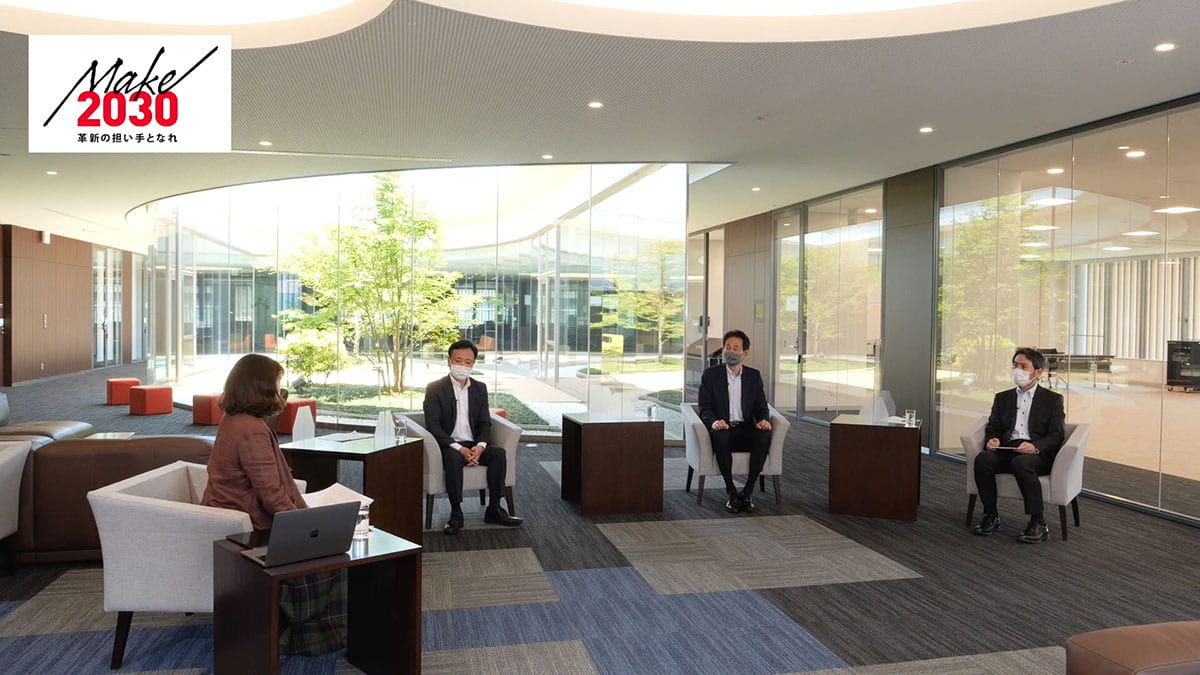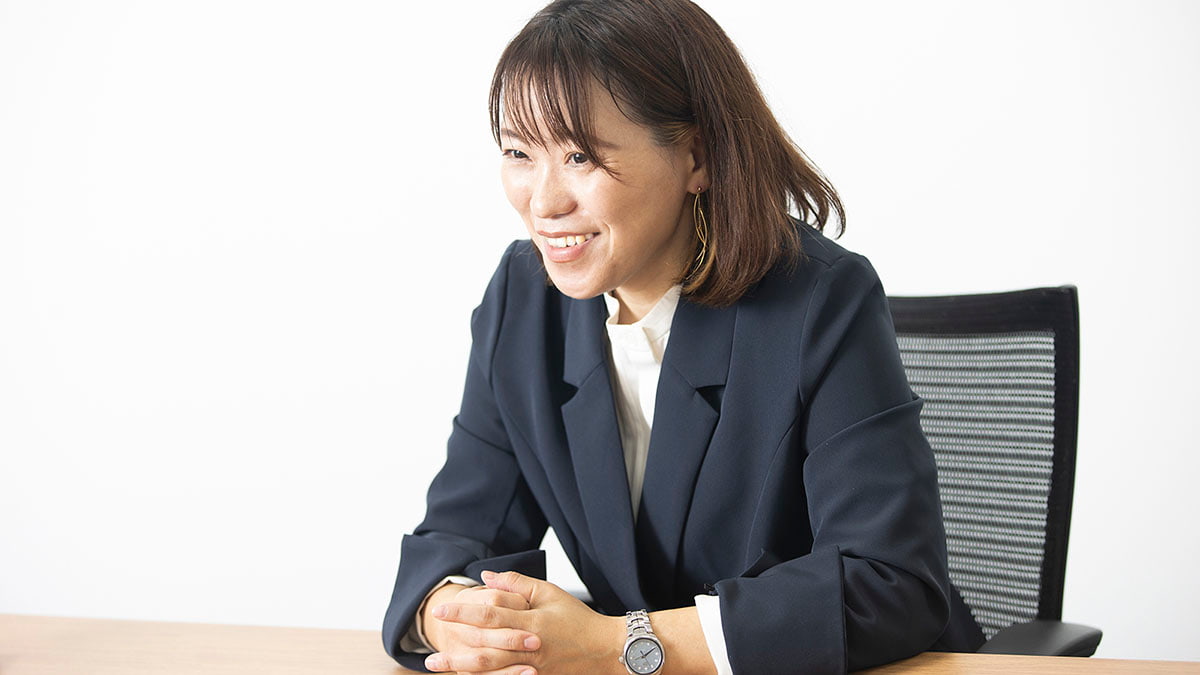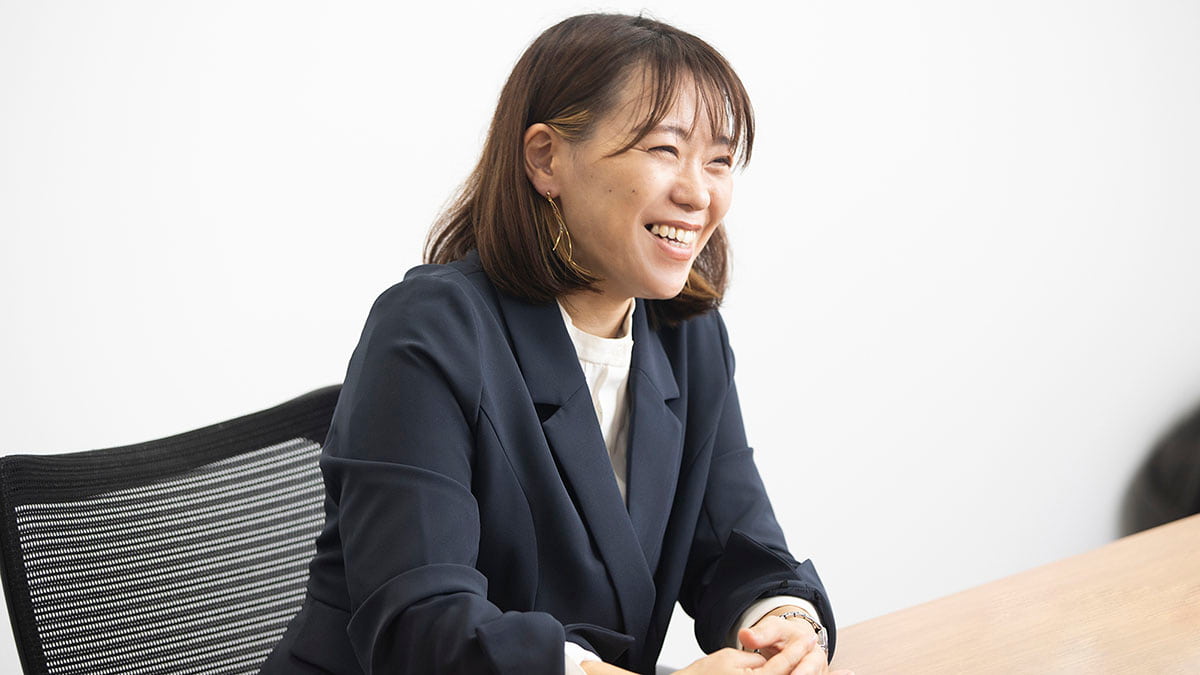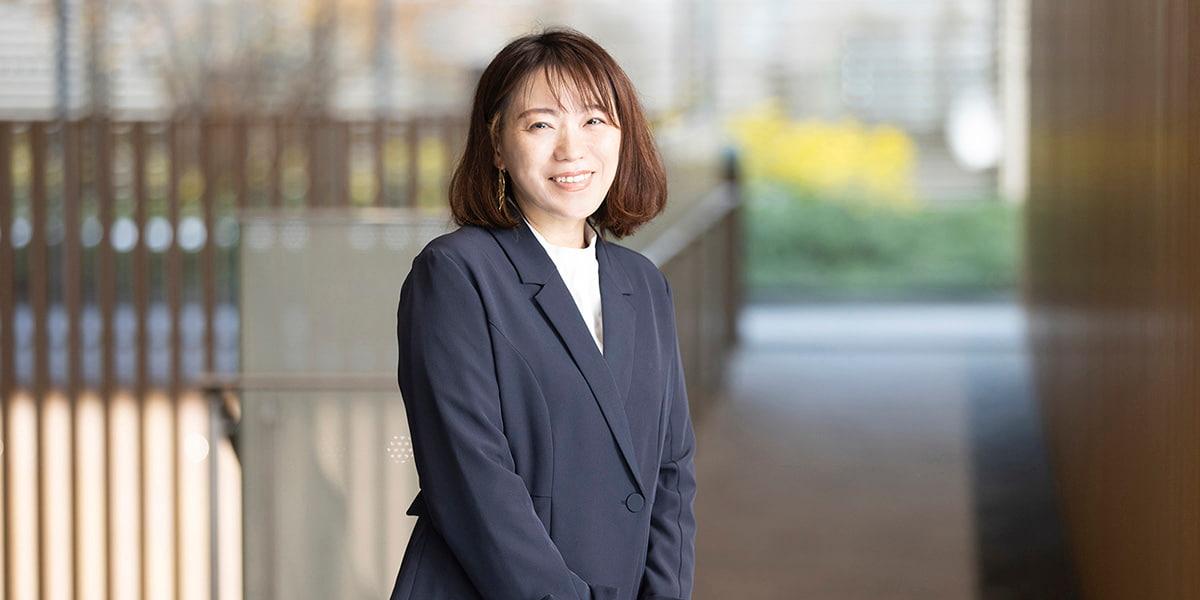Human resource development × muRata
How to Establish an Organizational Culture that Supports Mutual Growth
INDEX
2. The sense of duty to pass the baton from one generation to the next
4. People's enthusiasm spreads, and becomes the driving force for action
Murata recently implemented a new human resource development program called "Make 2030 - Be an Innovation Leader." The project progressed in consultation with expert advisors. For this article, we spoke to one such expert: Hirono Toriumi, an executive at Alphadrive Co., Ltd. / NewsPicks for Business, Inc. who created the program framework and supported the planning and facilitation of discussions and workshops. During the interview, she looks back on the program and shares some of the finer points about human resource development and organizational culture.
1. Unleash each employee's potential and create opportunities for them to take on challenges independently
"The way we approach organizational reform and human resource development has changed a lot in recent years," says Hirono Toriumi, who has helped many companies carry out organizational reforms.
Toriumi: "As many companies turn to change-responsive management, autonomy, creativity, and individuality are increasingly being focused on as the major trends in organizational reform and human resource development. However, such change cannot be achieved overnight because it involves many disparate elements that are at odds with the existing state of the organization. Companies face some considerable challenges, such as how to optimize the purpose, vision, and strategies of the entire organization and its businesses, how to reshape the way that employees and the organization operate, and how to produce transformation that originates from the people and the company culture."
Murata is also actively working on organizational reform and human resource development as we aim to realize our long-term direction, "Vision 2030." As part of this, we are focusing on developing mid-level employees who are expected to enter managerial positions in the future. To facilitate this, the Make 2030 human resource development program was conceived to nurture the next generation of leaders.
Toriumi: "In April 2021, I began exchanging opinions with Board Member Minamide, then Head of Human Resource Development Hayata, then Head of Management Strategy Suchi, and the secretariat, and we discussed the direction of Make 2030, the ideal qualities employees should gain from the program, and strategies to achieve that. The executives had a strong desire to nurture the next generation of leaders, so together we established the framework for Make 2030, and I assisted with the planning and implementation of discussions and workshops, including video production."
During discussions, the name "Make 2030 - Be an Innovation Leader" emerged for the program, and it is a name that is imbued with the executives' sentiments.
Toriumi: "As Murata Manufacturing expands, the executives want to make the organization a place where every employee's potential is realized, their perspectives are broadened, and opportunities for them to take on challenges independently are created. Taking everyone's passionate hopes for the company, we formulated the key message of becoming innovation leaders who drive innovation and make the future."
2. The sense of duty to pass the baton from one generation to the next

Toriumi acted as facilitator in an interview with Minamide, Hayata, and Suchi that was screened as a kick-off video at the start of Make 2030 in May 2022. She recalls, "The session really conveyed the fact that the three executives have a clear vision for the future of Murata Manufacturing and are working with conviction to realize Vision 2030."
Toriumi: "I observed the challenging spirit of a company taking on something as difficult as creating a virtuous cycle of social and economic value, and an open and equal corporate culture in which the executives discussed things at the same level as the program participants. I was particularly impressed by their message encouraging participants to try the things they want to do and enjoy themselves while in the program, it really brought across the fact that the executives believe in the potential of every employee and that they feel a sense of duty to pass the baton on to the next generation."
Toriumi had many opportunities to engage with Murata executives, such as lecturing in the management transformation sessions for experts and executives in step 1 of the program and serving as the facilitator in the round-table discussions between participants and executives in step 3. Reflecting on this experience, she says, "It was impressive to see that the executives were constantly considering Murata's future and exploring new possibilities, and constantly updating their information and thinking on matters."
Toriumi: "In the roundtable discussions with participants, each executive answered in their own words and based on their own vision, and though each opinion was highly individual and varied, the vector of thinking was surprisingly unified. Even when asked about things outside of their area of responsibility, they were able to give a proper answer, thereby showing that the organization is not divided. I felt that this served to show that the executives are in constant dialogue and communication with each other."
3. Further cultivating Murata's spirit of approaching the future in earnest and thinking in a straightforward manner
Talking about the participants in Make 2030, Toriumi felt that everyone was participating with a conscious sense of involvement.
Toriumi: "Participants put the lecture content in their own words to deepen their understanding, and thought seriously about what was necessary to bring about action. I think this attitude of approaching Murata's future in earnest and thinking about it in a straightforward manner is one of the characteristic qualities of people at Murata."
During the roundtable discussions with executives in step 3, Toriumi noticed a change in the participants.
Toriumi: "I was surprised to observe that, compared to step 1, participants exhibited an ability to think in a much more diverse and wide-ranging manner, and they had cultivated the perspective, cognitive abilities, and powers of expression required as the people will be responsible for Murata's future. I was tremendously impressed at the high level of questioning from a company-wide perspective and based on predictions for the future to identify the order in which they should work on things to create Murata's future."
Toriumi notes how participants were active in writing comments on NewsPicks Enterprise, a platform for learning and connecting that was used during the program.
Toriumi: "Participants made a habit out of engaging in daily output in the form of news-related comments and responses, and also used the platform to share their thoughts after talking to mentors and executives and in gathering information. Continuing to be inquisitive hones the mind. I think the long training period of one and a half years was also effective in forming the habit to keep asking questions."

4. People's enthusiasm spreads, and becomes the driving force for action
One of the distinctive features of Make 2030 was that it was a cross-organizational training program that transcended business and functional boundaries. Toriumi shared her opinion on the effect this had.
Toriumi: "President Nakajima is aware of the importance of avoiding division in the organization and producing innovation through horizontal connections, and cross-organizational training is effective for increasing diverse organizational strength. Furthermore, innovation is generated when people, information, and ideas come together in new combinations, so I think it is a meaningful approach to form bonds between colleagues."
The impact that participants on Make 2030 have on other employees in their department is also important.
Toriumi: "The inspiration that people receive from others is much larger than you might imagine. Seeing someone attempting something can in turn make you interested in new things, or take action after gaining someone's approval, and in this way, people's enthusiasm spreads, and becomes the driving force for action. I hope that the people who participated on Make 2030 will become ambassadors for Vision 2030, and promote it within their business."
5. The strong desire to nurture human resources is also passed on, creating an organizational culture
Murata has various approaches when it comes to developing human resources, and such example is the idea of "nurturing together collectively." Toriumi admires this sort of organizational culture as unique and of an unusually high standard.
Toriumi: "Human resource development takes time and effort, and if you put the effort in, people don't change overnight. While these negative elements are inevitable, Murata has a positive organizational culture for human resource development. This would not be possible without a strong desire to see others grow. And, those who are given the opportunity to grow pass on their feelings of gratitude to others. I believe that it is this act of passing on that has allowed the organizational culture to become well-established."
However, Toriumi asserts that it is not easy to foster an organizational culture.
Toriumi: "While many companies recognize the need to produce transformation that originates from the people and the company culture, there are quite a few companies that believe it is enough to simply introduce personnel training services and platforms. However, Murata recognizes the importance of fostering the climate, and spends the time, money, and effort required in this endeavor. That determination and intent is essential, and if Make 2030 was an app, then it only worked because Murata has the right operating system in terms of its organizational culture."
Finally, Toriumi expressed her hopes for the participants of Make 2030.
Toriumi: "I think that the participants getting together and speaking in their own words about how Murata should be in the future is precisely what it looks like to be an innovation leader. As a fan of Murata myself, I am really looking forward to the new value creation story that Murata will be weaving in 2030. Also, I want to be able to continue to feel the presence of each and every one of you behind it."

Hirono Toriumi
Executive at Alphadrive Co., Ltd., in charge of corporate transformation
Executive at NewsPicks for Business, Inc., in charge of NewsPicks Enterprise
Toriumi started her career as an advertising planner and has been involved in various projects, such as internal branding support for clients, recruitment strategy planning, branding support for educational institutions, and PR strategy planning, at Recruit Media Communications Co., Ltd. and other advertising agencies and production companies. She joined Alphadrive Co., Ltd. in June 2020. Using her experience in internal branding, she is helping companies to reform their corporate culture and organizational climate.

